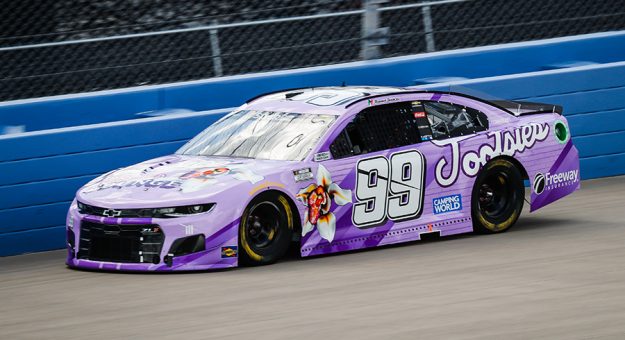The looming introduction of the Next Gen car, an initiative meant to lower the costs and barriers to operating a Cup Series team, has led to the rise in demand and value in charters.
In addition to Trackhouse and Kaulig, 23XI Racing is expanding its operation and is seeking a charter for an entry piloted by Kurt Busch. Perennial Truck Series contender GMS Racing announced in June its intent to compete in the Cup Series in 2022, but not whether it would be a full-time or part-time effort.
Also in the mix is Dale Earnhardt Jr.
A longtime team owner in the Xfinity Series with JR Motorsports, the Next Gen car may be the best chance he has of moving his team to the series where he won 26 races as a driver.
But that potential $10 million price tag is a big one for Earnhardt.
“It’s way out of my range, buddy,” Earnhardt said on his podcast, “The Dale Jr. Download,” in June. “JR Motorsports ain’t going to be racing in the Cup Series if that’s what the charters are going for.”
However, Earnhardt sees that cost as “a great thing” for NASCAR.
“The fact that the charters are going up in value. … That is exactly what they intended. I mean, if you’re an owner in this sport 10 years ago, if you wanted to sell your team you’d have nothing to sell, but parts and cars and pieces that are going to be sold for pennies on the dollar,” Earnhardt explained. “That was it. When you got out you really took a loss, kind of like buying and selling boats. I’ve never had a boat appreciate, and I’ve never been able to sell one for what I paid for it. And that’s the way race teams are and racing equipment is the same way. …
“If you’re selling a charter and you’re selling it for $10 million, that’s $10 million that you weren’t going to get when you sold your team five years ago. So that’s amazing that they’ve somehow created this charter system and it works.”
The cost of an individual charter played at least some part in Trackhouse moving to buy a whole team. In that vein, garage buzz during the Indianapolis race weekend in August had Denny Hamlin and 23XI Racing looking at possibly buying another team.
“Obviously, the charter agreement goes to ’24, so we have to make sure we are making a sound investment for the next three years, because we cannot predict what happens beyond that,” Hamlin said in June at Nashville Superspeedway. “So, we have to weigh all of those options. I’ve spent a decent amount of time in this sport making a decent amount of money. I don’t want to piss it all away right away.”
Cashing Out
Following 20 years of NASCAR ownership, Chip Ganassi is getting out of the game.
Ganassi praised the charter system despite saying his charters didn’t represent “the main thrust of the sale.”
“It’s a piece of it, but it was also making sure that this business gets put in the right hands for somebody that has a vision and has an idea of what they want to do going forward and has a plan and has the money to do that,” Ganassi said.
For the last six years, Rob Kauffman was a minority part of the Ganassi ownership group.
But he also serves as chairman of the Race Team Alliance and was an architect of the charter system.
For him, the importance of the system wasn’t what a charter costs at any given moment. Instead, it was in how it helped the sport respond during a time of “crisis,” such as the COVID-19 pandemic.
“I think the seeds we planted with the charter system added a great communication line between the teams and NASCAR and the competition people and the business people,” Kauffman said on SiriusXM NASCAR Radio in July. “If we hadn’t had the charter system and all that muscle memory of how you work together, I don’t think we could have responded as an industry as well (as we did).”
However, the focus on charters right now is on how much they cost and what someone will do to get one.
“You’ve seen transitions of teams, whether it was a bankruptcy situation where there was a value that was salvaged,” Kauffman said. “There’s new teams coming in, it’s been healthy. Teams that otherwise would’ve probably shut their doors and liquidated value have had some continuity. … The values, it’s supply and demand. … Hopefully, next time around we can make it even better.”
But that demand might leave an architect of the system without an ownership stake in the Cup Series.
“Technically, I won’t be a team owner if I don’t do anything proactively between now and the start of next season,” Kauffman said. “My ears are open for opportunities and we’ll see what comes along.”
